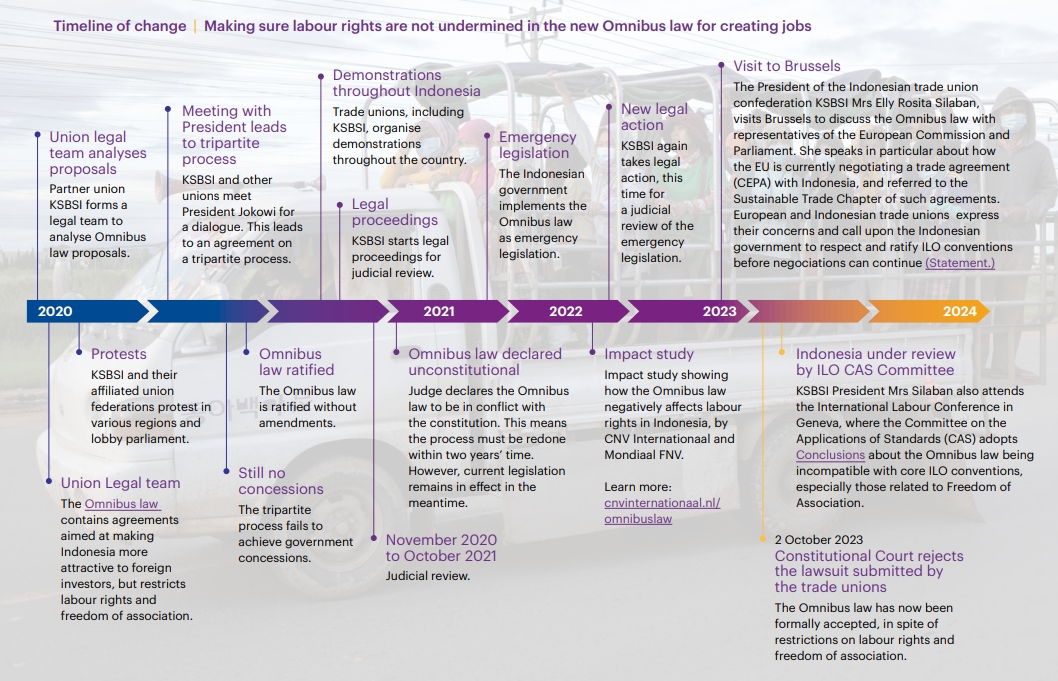Landmark Court Decision Strengthens Worker Protections Against Omnibus Law
Indonesian workers achieved a major victory on 31 October 2024. The Constitutional Court partially granted the petition of a judicial review on the Job Creation Law, commonly known as the Omnibus Law. A review petition was filed by Indonesian trade unions and the Labour Party, which called for amendments to protect labour rights.
This ruling represents a significant win for Indonesian trade unions, who have been opposing the negative impact of the law, arguing that it threatens workers’ rights and weakens labour protections. The court’s decision now requires the government to draft a separate Employment Law, a step that will hopefully prompt the government to seek the International Labour Organisation’s (ILO) assistance on the implementation of the recommended labour reforms.
Details of the ruling:
Since the Job Creation Law was introduced, it faced extensive resistance from Indonesian workers. The ruling addresses the following:
- Limitations on hiring foreign workers: To protect job opportunities for Indonesian workers, foreign workers can only be employed for limited period of times.
- Contract and outsourcing restrictions: Outsourcing agreements must specify roles and responsibilities that align with workers protections.
- Minimum wage and living standards: Regional wage councils need to set minimum wage standards that reflect local living costs and economic conditions.
- Enhanced wage structure: Companies need to develop structured wage scales that regard the experience and qualifications of employees.
- Increase in job security: Workers’ severance payments need to be prioritised over creditors in the case of company bankruptcy.

The Job Creation Law
The Job Creation Law, also known as the Omnibus Law, was proposed in February 2020, aiming to boost economic investments and industrialisation in Indonesia. However, not long after the proposal, environmentalists and trade unions expressed their concerns, because they feared that it would undermine labour rights and increase deforestation. Despite their protests, the law was passed in October 2020.
How the Omnibus Law undermines labour rights:
- Risk of excessive working hours, which can harm occupational health and the safety of workers.
- Living wages are under pressure because living costs are now only reviewed once every five years, instead of every year.
- Not paying the minimum wage is no longer a legal offence, which means that companies have no legal incentive to properly pay their employees.
- A reform in outsourcing can lead to precarious working conditions and wear down working conditions.
Publication date 01 11 2024


